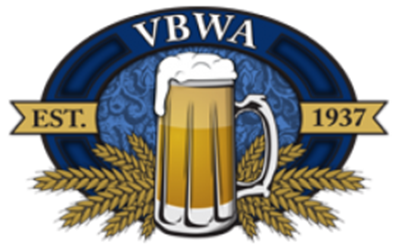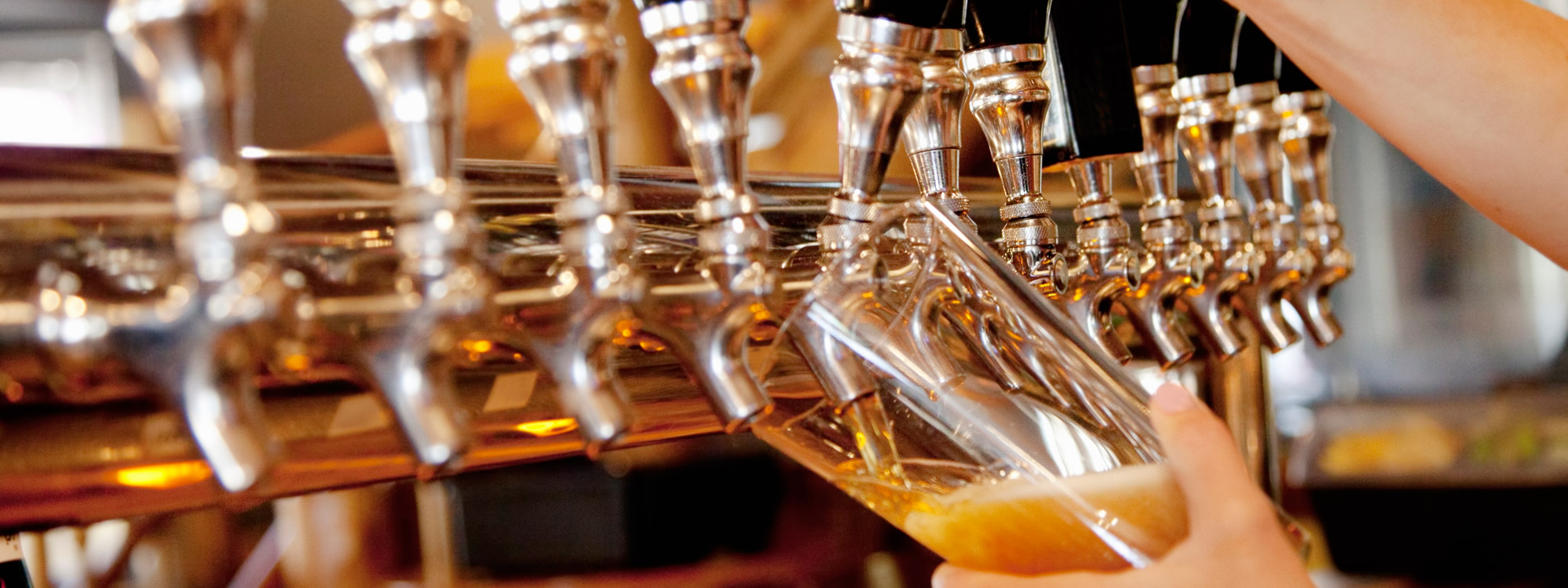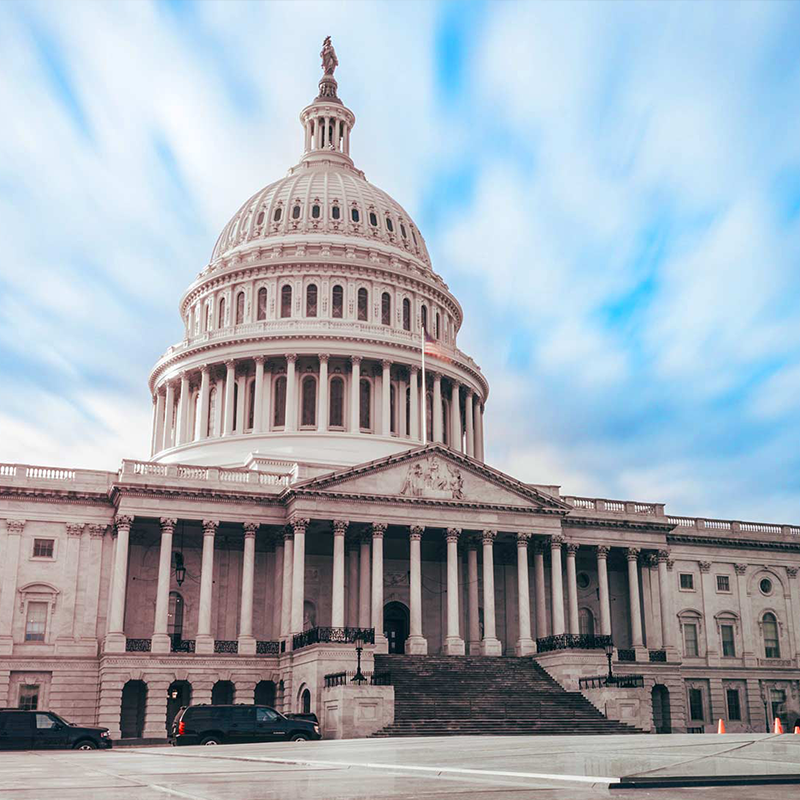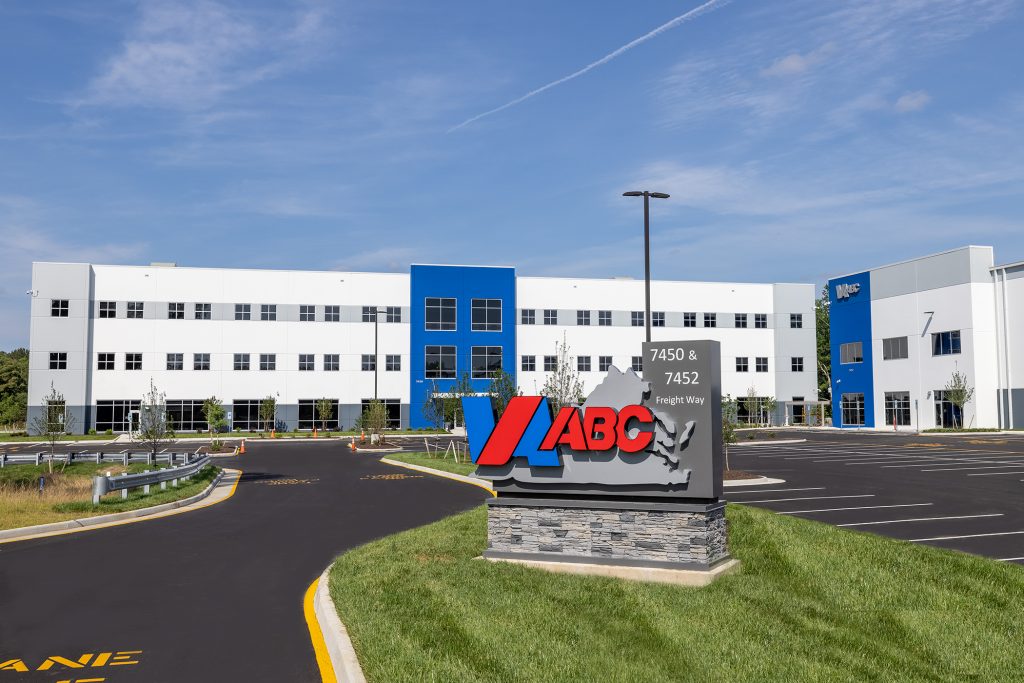
Travis Hill’s marching order to Virginia ABC’s 4,700 full-time and part-time statewide employees is clear: Adopt the mindset of the customer, and serve them.
To the Virginia Alcoholic Beverage Control Authority, the idea of the “customer” is a two-parter. There are the beverage customers who shop from any of the 395 state liquor stores or buy alcohol from any of the 19,000 ABC-licensed restaurants, breweries, distilleries, wineries, and other establishments. But to ABC, their customer is also those licensees — among them, beer distributors — who need to understand the regulations around the manufacture and sale of alcohol and be reassured they are operating under the rules and regulations of an alcohol-controlled Commonwealth. Most follow the rules and stay proactive to ensure they keep their license.
But there are few participants out there who are the reason ABC agents carry pistols and badges.
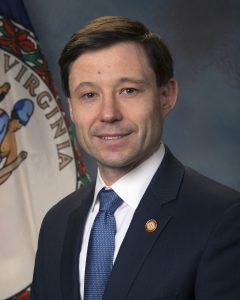 As CEO of Virginia ABC, Hill oversees a statewide operation that has contributed more than $2.6 billion to Virginia’s general fund in the last five years — dollars that go to education, infrastructure, and state services.
As CEO of Virginia ABC, Hill oversees a statewide operation that has contributed more than $2.6 billion to Virginia’s general fund in the last five years — dollars that go to education, infrastructure, and state services.
Since coming onto the job in 2018 (and serving in a leadership capacity at ABC since 2014), Hill has led ABC’s transition from a government agency to an authority — a type of independent political subdivision of the Commonwealth. Such structure gives ABC the ability to move like a business without the burdens of government, while still leading enforcement and ensuring public safety.
Hill took some time to talk to VBWA from the new ABC headquarters in Hanover County, a sprawling 40-acre, 315,000-square-foot site (expandable to nearly 400,000 square feet) that sees every bottle of liquor sold in the Commonwealth pass through its warehouse. He discussed this new location, his upbringing, detailed the latest on enforcement hiring, and even shared his favorite spirit. Read a portion of his interview here, or listen on our podcast below.
VBWA: So the HQ opened in June 2021. Is everyone back in the office?
Hill: Hybrid is what we’re doing now. We’re up to three days in office, two days remote for most folks. But we had people immediately on-site in June of ’21. So many of our people need to be on site in order to do the work. And we’ve got almost 400 stores across the Commonwealth. They haven’t missed a beat. They haven’t missed a day.
Let’s get to know Travis Hill. What came before you did undergrad and law school at UNC-Chapel Hill?
I was born in Germany. My father was in the Air Force. When we came back, my father went to Virginia Tech on the G.I. Bill. Both my parents grew up in Virginia Beach. I grew up a Virginia Tech fan; I remember running around campus when they weren’t very good in football. You could get into the stadium pretty easily back then.
I grew up in southwest Virginia, Maryland, Tennessee, and then landed in North Carolina for middle school. And went to UNC-Chapel Hill for undergrad and law school.
And Virginia called again, where you took a job at Williams Mullen. What then?
My wife is from Maryland, so it was a good compromise to land back in the Commonwealth. I really sat at the side of a great mentor of mine, Bill Axselle, a former member of the House of Delegates, and just an all-around great guy.
I came to Virginia from North Carolina not really knowing anything about government in Virginia or how things worked. He kind of took me in and said, “Hey, you’re going to follow me around for a while.” And that’s exactly what I did. (Editor’s Note: Axselle retired from Williams Mullen in 2017 and passed away in 2019. He was well-regarded statewide; the firm noted he “led a life that was defined by grace, generosity and respect.”)
My practice was primarily regulatory and legislative. I got to to learn the legislative process walking the halls of the General Assembly, working with members of the administration, and just kind of going from there.
And then you are tapped by Gov. Bob McDonnell’s administration to join as Deputy Secretary of Agriculture. Why did you leave private practice for government?
I come from a family of public servants. Both my grandfathers were civil servants. It’s just a great honor and opportunity to be a public servant. I came in on the policy side to figure out what needed to be done, what programs we could support, and got pretty heavily involved in economic-development efforts around agriculture and forestry.
At that time, Virginia wine was really starting to hit its stride. Other than trying a single ABC case when I was a practicing lawyer, that was my first time really getting into the wine and alcohol side.
You joined ABC in 2014 as Chief Operating Officer. What was it about this industry that interested you?
We served out the McDonnell term. I was reappointed and served the first eight or nine months in the McAuliffe administration. The outgoing Chief Operating Officer of ABC retired, and they said, “Hey, is this an opportunity you’re interested in?”
At that point, there was this view of the regulatory nature of Virginia ABC, which is a huge component.
But this is a business as well. Pretty quickly we were identifying investments really hadn’t been made in the organization in a long time. Everyone should know how much revenue Virginia ABC produces for the Commonwealth. We’ll transfer over half a billion dollars to the general fund between revenues and taxes. But in order to maintain operations, you’ve got to invest in the business. And that hadn’t been done to the degree it needed to.
A big part of my time here at Virginia ABC has been investing. Some of it is not all that exciting stuff, like finance systems, but other things are, like e-commerce and web presence.
You became Virginia ABC’s first-ever CEO in January 2018 as part of the new structure requiring such a role, and have led the transition from a traditional state government agency to an authority. What has this new model allowed ABC to do?
I like to tell people I’m the greatest CEO in the history of Virginia ABC, though someone also reminded me that would mean I’m the worst, too.
The wholesaler community was a big part of this conversation and advancing the authority legislation. Governor McDonnell had pursued a privatization attempt with Virginia ABC, and it failed, because the numbers just didn’t work.
The revenue produced by ABC was just incredibly important to the Commonwealth. But it was also a public-safety conversation as well.
But I think folks did realize this is such a large business now, that it probably makes sense to allow it to operate a little bit unfettered from some of the stronger constrictions of a traditional state agency.
What is your argument for the authority model?
It was a great approach to the criticism of people saying, “Why is government in liquor?” You can have a philosophical conversation, but from an efficiency standpoint, if we can shed that monopoly mindset, and make sure we’re meeting the needs of the customers, that’s the strongest argument for Virginia ABC doing what we do.
We are able to do that with having our own purchasing and procurement policies that we can set to be a little bit more nimble, or our own human-resources policy so that we can respond to market forces when it comes to competition for talent, and making sure that we are running efficient operations.
So do you view the the authority as kind of a happy medium between the “Privatize it” and “Keep it controlled” crowds?
Yeah. It gives us the flexibility of being able to run more like a business, but it maintains that tie to a very important part of our mission, which is public safety.
It’s public safety in terms of how we locate our stores, how we market our stores, how we communicate with customers, and making sure that revenue — while important — isn’t the only part of the conversation. We’re still selling a controlled substance and we need to do that responsibly. And so I think [the authority structure] strikes that kind of balance.
As you are aware, there was a short-lived bill in 2022 to privatize the retail end of ABC. It’s come up before, and it will no doubt return. What is ABC’s voice when it comes to privatization discussions?
I view our role when we work with the General Assembly as one of making sure the policymakers understand the facts, and they understand the implications of certain decisions and where things stand.
You’re going to have some really good sound bites around this issue. But at the end of the day, we try to communicate — certainly the revenue, how much how much money Virginia ABC produces for the Commonwealth — how we do it, and the responsibility that we have as a retailer.
[As an example], we have a rural location strategy, where we make sure that we’re locating stores so that we serve all of the Commonwealth. You may not have that in a privatized model.
What we saw in Washington state, which was the last control state to privatize, was you actually saw prices go up and you saw selection go down.
We have a tremendous number of products we carry. We focus on carrying Virginia products. And you’re not necessarily going to have that with a big-box approach, because they’re going to look at the highest volume [products], and they’re going to sell those.
As long as we do our jobs around making sure consumers have selection, they have convenience of location, they feel safe in our stores, our stores look nice, they’re easy to shop in, for the question around “Does Virginia ABC have a valid place in the Commonwealth?”, the answer is “Yes.”
The COVID response is a great example of that. We continued to operate our stores, we continued to fill orders, protect our employees, and make sure customers stayed safe. In other states and communities, that didn’t happen. On the regulatory side, we were able to accommodate operations of licensees in the midst of additional public health restrictions.
The latest Virginia budget provided $1 million to the Bureau of Law Enforcement to increase its ability to address unlawful direct shipment into Virginia of alcoholic beverages by unlicensed businesses and fulfillment centers. The new positions are effective as of July 1 and include four auditors, three non-sworn compliance agents, two special agents and one license technician.
Unlicensed businesses and fulfillment centers, based on reports by transportation carriers and compiled by ABC, represent significant unrealized revenue for the Commonwealth and negatively impact lawful Virginia businesses’ opportunity. So what’s the latest on hiring?
We are in the recruitment stage for a lot of those. The alcohol industry is certainly shifting and changing these last few years. And so enforcement has tried to stay nimble around that, enforcing how alcohol is coming into the state, as you’re not allowed to ship spirits into the state.
We’re in the process of checking common carrier reports – the FedEx and UPS reports that that show what alcohol is coming into the state.
We have a mindset of focusing on the licensees: making sure that they understand the rules, and that we provide guidance to them, and that we provide a level playing field for all licensees. Because that’s what businesses really want. When there’s a regulator involved, distributors and licensees want to know want to know the rules and that you’re enforcing the rules equally and fairly. And if we do that, then you can have an industry that can move pretty fluidly.
We’ve been historically understaffed in field agents. It’s incredibly difficult to recruit in the public safety field right now. We’ve got pretty robust recruitment going on right now. We were able to make some adjustments in compensation for our special agents. And that is that is showing positive effects in terms of the level of applicant we’re getting, and the number of applications we’re getting.
The Enforcement division includes sworn officers. There have been calls for “pencils not pistols,” in other words, hiring non-sworn positions that require less training and no badge. Are you open to that approach?
There’s a proper balance in there. [Virginia ABC Chief Law Enforcement Officer] Tom Kirby and I talk quite a bit about the right way to staff our Bureau of Law Enforcement. I think having fully sworn officers is the right way to go.
And a lot of instances, there are licensees out there where you want a law enforcement component. It also comes with a mindset around how to investigate, and how to observe interactions. It also gives us the ability to investigate criminal violations and move those to the top of our priority, rather than having to wait for another [law enforcement] organization to come in. We’re always going to partner with local law enforcement, but it gives us that ability to operate.
By the same token, a lot of the things that we’re doing now — bookkeeping, tax collection, shipping, those types of things — we can involve non-sworn individuals to help bolster our enforcement capacity. We’re going to look and say, “Okay, what’s the right role for a fully sworn law enforcement officer? What are the things on his or her desk that might be able to be moved over to a non-sworn capacity and handled more effectively?” Because that law enforcement position is expensive. There’s a lot of training that is involved, a lot of equipment, all those types of things. And so it’s to our benefit to make sure that the proper balance is struck.
Anything else you’d like to add?
Our mindset at ABC is trying to figure out how to best serve the customer, whether that customer is someone coming in the front door of an ABC store, or it’s a licensee.
We just instituted license reform where we tried to make it more straightforward around obtaining an ABC license.
We’ve instituted a new licensing system that we’ve rolled out. With any IT system, there’s going to be some bumps in the road. But the goal is to make it easier to transact and do business with us — put more things online and allow people to interact with us in the times that are convenient to them.
We’re also going through regulatory review, looking at our regulations, asking the questions: Do these words still make sense? Do the rules behind them still make sense? Do we need to revisit or revise them? Is there a way to just keep the rule, but clarify the language so it’s easier for people to read? I think that’s important for us to always be aware of so that it’s not confusing to people.
In my view, [the three tier system] has served Virginia well. The alcohol industry is going to continue to evolve. We can evolve as well, without throwing out a system that served us for 80-plus years. And that’s the conversation we’re going to have around legislation and regulation.
Before we let you go: Do you have your own spirit of choice? Are you even allowed to answer this question?
I was mostly a beer and wine guy before I started, and I probably had the normal liquor lineup in the cabinet. That cabinet has certainly grown over the years. Whenever I visit a store, I tend to buy something.
I did get a question when I was visiting with some store employees about what my favorite spirit was. And I told them: “Whatever is on sale.”
